Want to know more about the Best Schools For Soil Sciences In the US and make an informed decision? Here is a good place to start.
Don’t let the soil science school search bury you alive. It can be tough to dig through all the options and find the right fit.
But fear not, this article is your golden shovel to unearth the top US soil sciences schools, so you can plant the seeds of success in your career.
Please note that schools are selected based on our criteria (at the end of the article), ranked by the latest acceptance rate.
Table of Contents
#25. University of Kentucky


- Acceptance rate: 96%
- Average entry score: 1070-1320 SAT or 21-28 ACT
- Student-to-faculty ratio: 16 to 1
- Estimated cost of attendance (tuition and fees): $24,453-$45,530
- Average earning potential for graduates: $21,600 (College Simply)
The soil sciences programs at the University of Kentucky provide students with a strong foundation in the study of soil science.
Graduates of the program are equipped with the knowledge and skills needed to pursue careers in a variety of fields.
Additionally, the program offers opportunities for community outreach and engagement, allowing students to apply their skills and knowledge to real-world problems.
Source: University of Kentucky
#24. Kansas State University

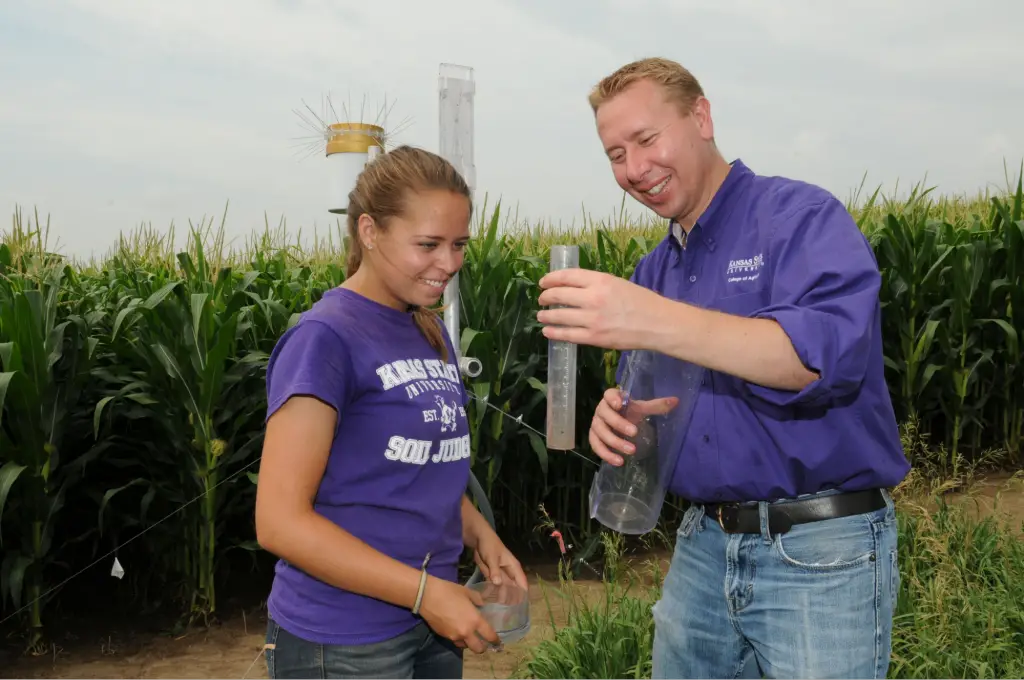
- Acceptance rate: 95%
- Average entry score: 1165 SAT or 24-28 ACT
- Student-to-faculty ratio: 18 to 1
- Estimated cost of attendance (tuition and fees): $42,057
- Average earning potential for graduates: $29,400 (College Simply)
Kansas State University’s soil sciences programs blend theoretical knowledge and practical experience to equip students with the skills they need to be successful soil scientists.
Upon completion, graduates will have a solid foundation in soil science fundamentals, including chemistry and physics of soils, principles of soil fertility management, soil conservation, and land use planning.
Source: K-State Agronomy
#23. Iowa State University

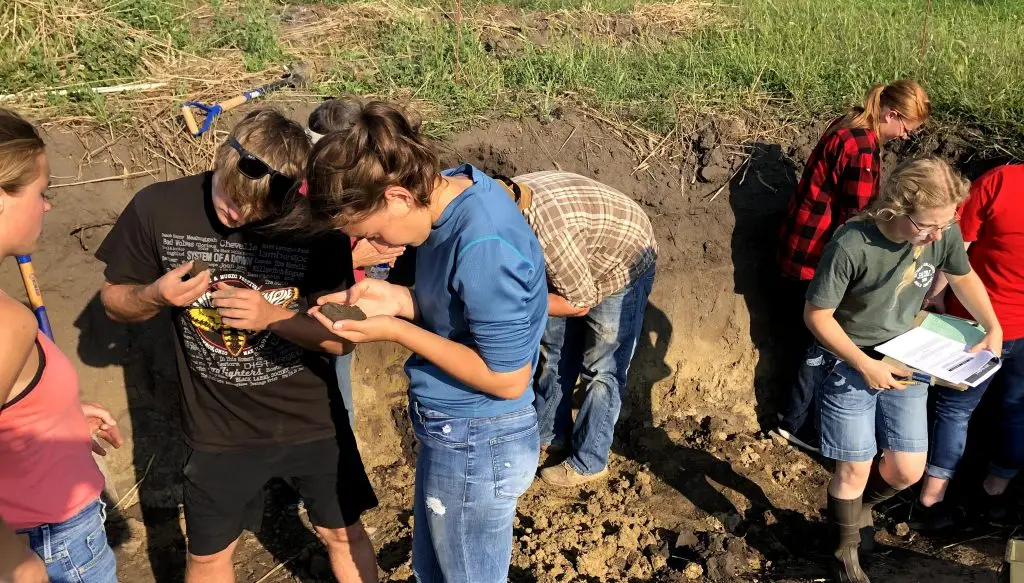
- Acceptance rate: 89%
- Average entry score: 1010-1310 SAT or 21-28 ACT
- Student-to-faculty ratio: 19 to 1
- Estimated cost of attendance (tuition and fees): $21,940-$37,128
- Average earning potential for graduates: $43,700 (College Simply)
Iowa State University offers undergraduate and graduate programs in soil sciences, providing students with a comprehensive understanding of soil properties, management, and conservation.
The curriculum emphasizes the integration of biology, chemistry, and physics in studying soil and its relationship with plants, animals, and the environment.
Students have access to state-of-the-art labs and field research facilities. The program is supported by a team of experienced and dedicated faculty members.
Source: Department of Agronomy
#22. Arizona State University
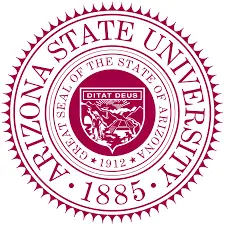

- Acceptance rate: 88%
- Average entry score: 1120-1180 SAT or 22-24 ACT
- Student-to-faculty ratio: 18 to 1
- Estimated cost of attendance (tuition and fees): $32,207
- Average earning potential for graduates: $28,300 (College Simply)
Arizona State University offers a range of soil sciences programs, including undergraduate and graduate degrees, as well as research opportunities.
Students in these programs have access to state-of-the-art facilities and resources, including labs, fieldwork opportunities, and access to faculty experts.
They are also able to engage in hands-on research projects, internships, and fieldwork experiences, giving them practical and real-world experience in the field. Graduates of these programs are well-equipped to pursue careers in soil science, environmental science, agriculture, and related fields.
Source: ASU
Similar articles like this:
- 25 Best Schools For Business Management Studies In The US
- 25 Best Schools For Programming In The US
- 25 Best Commerce Schools In The US
#21. Auburn University


- Acceptance rate: 85%
- Average entry score: 1170-1350 SAT or 24-30 ACT
- Student-to-faculty ratio: 29 to 1
- Estimated cost of attendance (tuition and fees): $32,678-$52,838
- Average earning potential for graduates: $30,000 (College Simply)
Auburn University’s soil science program focuses on educating students about the physical, chemical, and biological properties of soils.
The curriculum includes courses in soil chemistry, microbiology, physics, and soil ecology. Students can pursue undergraduate, graduate, and doctoral degrees in soil science.
Graduates are prepared for careers in agriculture, environmental consulting, natural resource management, and academia.
Source: Auburn Agriculture
What’s it like to study at Auburn University?
#20. Colorado State University


- Acceptance rate: 84%
- Average entry score: 1174 SAT or 26 ACT
- Student-to-faculty ratio: 17 to 1
- Estimated cost of attendance (tuition and fees): $29,109-$48,389
- Average earning potential for graduates: $24,500 (College Simply)
CSU’s soil sciences programs provide students with the knowledge and skills needed to address pressing environmental issues related to soil and agriculture.
The curriculum covers topics such as soil fertility, plant physiology, and pest management. Graduate students can specialize in areas such as soil microbiology, soil physics, or soil chemistry.
Source: General Catalog
#19. Washington State University

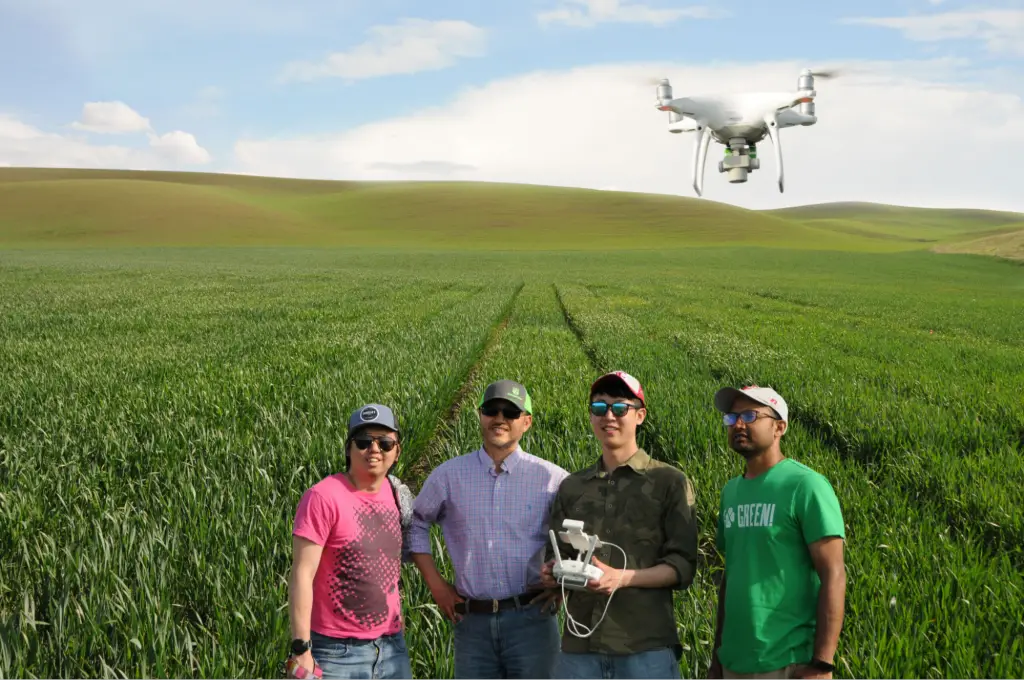
- Acceptance rate: 83%
- Average entry score: 1020-1240 SAT or 18-25 ACT
- Student-to-faculty ratio: 15 to 1
- Estimated cost of attendance (tuition and fees): $28,669-$43,985
- Average earning potential for graduates: $29,100 (College Simply)
Washington State University’s soil science programs equip students with the knowledge and skills to understand and manage soil systems.
Through rigorous coursework, field research, and hands-on experiences, students learn about soil chemistry, biology, physics, and ecology.
Faculty members guide students through research projects, preparing them to contribute to the scientific community. The program’s emphasis on interdisciplinary collaborations and real-world problem-solving molds scientists
Source: Department of Crop and Soil Sciences
#18. Oregon State University


- Acceptance rate: 82%
- Average entry score: 1120-1360 SAT or 21-28 ACT
- Student-to-faculty ratio: 18 to 1
- Estimated cost of attendance (tuition and fees): $30,302-$50,405
- Average earning potential for graduates: $30,900 (College Simply)
Oregon State University’s Soil Science graduates thrive due to their rigorous education, hands-on experiences, and cutting-edge research exposure.
This comprehensive program, combined with dedicated faculty and a strong alumni network, equips them with in-depth knowledge, problem-solving skills, and adaptability.
Consequently, they excel in diverse careers spanning agriculture, environmental management, and sustainable land use, making a significant impact on our planet’s future.
Source: Oregon State University
What’s it like to study at Oregon State University?
Similar articles like this:
#17. University of Nebraska Lincoln


- Acceptance rate: 79%
- Average entry score: 1240 SAT or 24 ACT
- Student-to-faculty ratio: 16 to 1
- Estimated cost of attendance (tuition and fees): $26,252-$43,382
- Average earning potential for graduates: $30,000 (College Simply)
Soil sciences students at the University of Nebraska Lincoln have the opportunity to work on real-world problems and conduct research that can have a lasting impact.
As a top institution, the university has access to some of the most advanced facilities and equipment in the nation.
Students leave the program with the skills, knowledge, and experience to succeed in any soil science-related field.
Source: University of Nebraska Lincoln
What’s it like to study at the University of Nebraska Lincoln?
16. University of Tennessee Knoxville

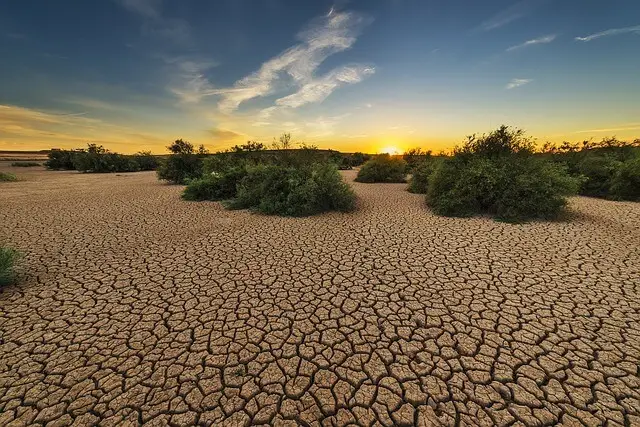
- Acceptance rate: 78%
- Average entry score: 25-31 ACT
- Student-to-faculty ratio: 17 to 1
- Estimated cost of attendance (tuition and fees): $32,658-50,848
- Average earning potential for graduates: $34,300 (College Simply)
UT Knoxville soil science program is a well-rounded and interdisciplinary program that caters to both undergraduate and graduate students.
This program emphasizes practical experience and research by providing its students with hands-on experience and opportunities to work with advanced equipment.
Graduates of the program are equipped with the knowledge and skills necessary to succeed in various careers in industries such as soil resource management, agricultural production, and environmental consulting.
Source: University of Tennessee Knoxville
#15. Michigan State University

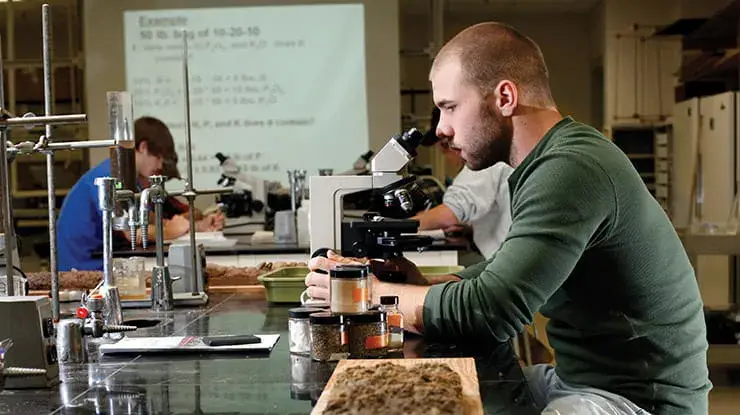
- Acceptance rate: 76%
- Average entry score: 1109-1320 SAT or 23-29 ACT
- Student-to-faculty ratio: 16 to 1
- Estimated cost of attendance (tuition and fees): $29,184-$54,490
- Average earning potential for graduates: $35,700 (College Simply)
Michigan State University is the place to be for those who want to dig deeper into the secrets of the soil.
With a learning environment that’s as rich as the earth itself, students get their hands dirty while learning the nitty-gritty of the subject.
From the classroom to the fields and labs, students are guided by expert faculty who know how to stir up a passion for the subject.
Source: Michigan State University
#14. Pennsylvania State University

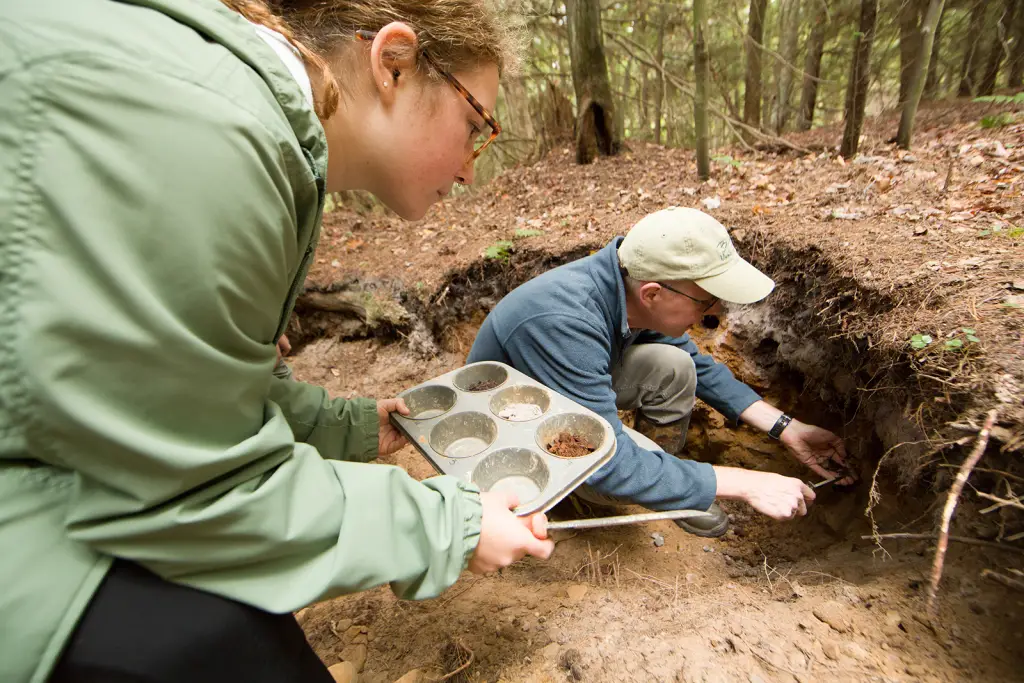
- Acceptance rate: 74%
- Average entry score: 1200-1400 SAT or 26-32 ACT
- Student-to-faculty ratio: 14 to 1
- Estimated cost of attendance (tuition and fees): $36,484-$54,062
- Average earning potential for graduates: $19,900 (College Simply)
Penn State offers comprehensive soil science programs that prepare students for careers in research, industry, and government.
Students can pursue undergraduate and graduate degrees in soil science, with a strong emphasis on hands-on learning and research opportunities.
Faculty members are experts in various areas of soil science, from soil physics to soil microbiology, and conduct cutting-edge research that addresses real-world challenges.
Source: Penn State
Similar articles like this:
- Best Schools For Geography Degrees
- 25 Best Business Administration Schools In The US
- Best Schools For Forensic Science
#13. Oklahoma State University


- Acceptance rate: 68%
- Average entry score: 1160 SAT or 24 ACT
- Student-to-faculty ratio: 20 to 1
- Estimated cost of attendance (tuition and fees): $29,890
- Average earning potential for graduates: $29,500 (College Simply)
Oklahoma State University boasts a fairly large student population who are passionate about their studies.
With state-of-the-art facilities, expert faculty, and extensive research opportunities, students gain a deep understanding of the importance of soil health in agriculture and environmental sustainability.
The program also emphasizes hands-on learning, fieldwork, and networking opportunities, providing students with real-world experience and connections that enhance their career prospects.
Graduates of the program are well-equipped to make meaningful contributions to the field and have a high success rate in finding employment.
Source: Oklahoma State University
#12. Purdue University Main Campus


- Acceptance rate: 67%
- Average entry score: 1267 SAT
- Student-to-faculty ratio: 14 to 1
- Estimated cost of attendance (tuition and fees): $24,390-$50,000
- Average earning potential for graduates: $33,500 (College Simply)
Purdue University West Lafayette trains the next generation of soil scientists and environmental scientists through a variety of graduate and undergraduate programs.
Many of these students will go on to work in the field, applying their knowledge to help solve some of the world’s most pressing problems.
Backed by a world-class faculty and a large alumni network, Purdue University is proud to be one of the nation’s top schools for soil science and environmental science.
Source: Purdue University
#11. University of Massachusetts Amherst

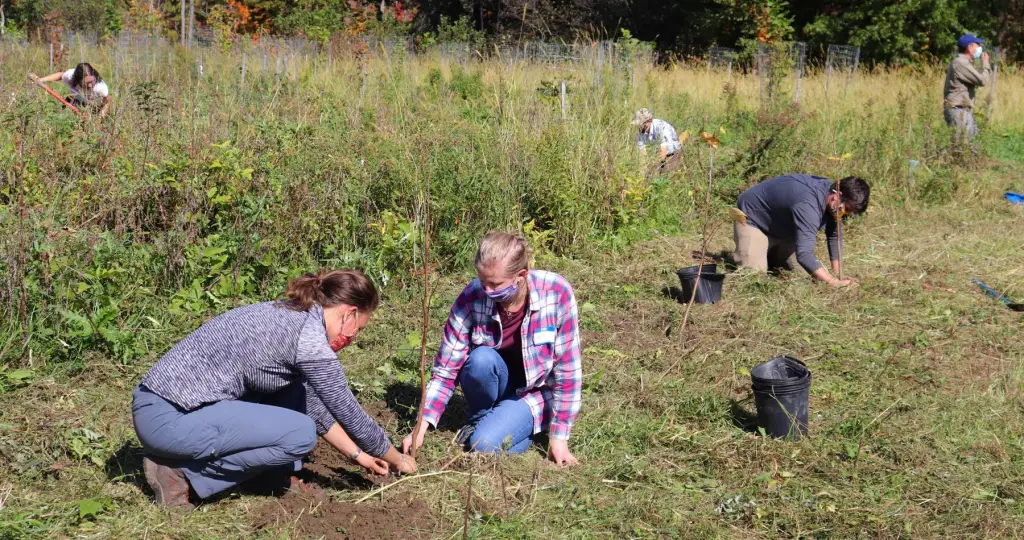
- Acceptance rate: 65%
- Average entry score: 1190-1390 SAT or 28-33 ACT
- Student-to-faculty ratio: 18 to 1
- Estimated cost of attendance (tuition and fees): $33,056-$53,581
- Average earning potential for graduates: $29,500 (College Simply)
With an experienced faculty, the University of Massachusetts students are in for a treat learning from these experts with their unique perspectives and practical expertise.
But it’s not all lectures and textbooks in this program. Students get their hands dirty with hands-on experiences like soil conservation, sustainable agriculture, and environmental science.
Source: UMass Amherst
What’s it like to study at the University of Massachusetts Amherst?
#10. Texas A&M University

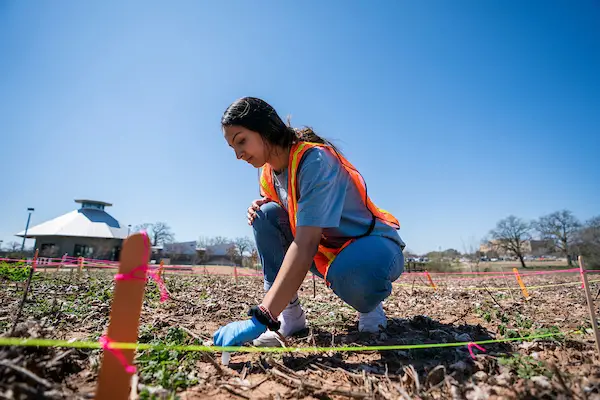
- Acceptance rate: 63%
- Average entry score: 1160-1390 SAT or 25-31 ACT
- Student-to-faculty ratio: 21 to 1
- Estimated cost of attendance (tuition and fees): $30,608-$58,976
- Average earning potential for graduates: $43,500 (College Simply)
Texas A&M University has a well-regarded soil sciences program that offers both undergraduate and graduate degrees.
The program provides students with hands-on experience in the field and in the lab, teaching them about soil microbiology, chemistry, and physics.
Faculty members are also involved in cutting-edge research that provides students with opportunities to learn about new technologies and techniques.
Source: Texas A&M University
Similar articles like this:
- 25 Best Schools For Insurance Degrees In The US
- Best Schools For International Relations
- 25 Best Digital Marketing Schools In The US
#9. Clemson University

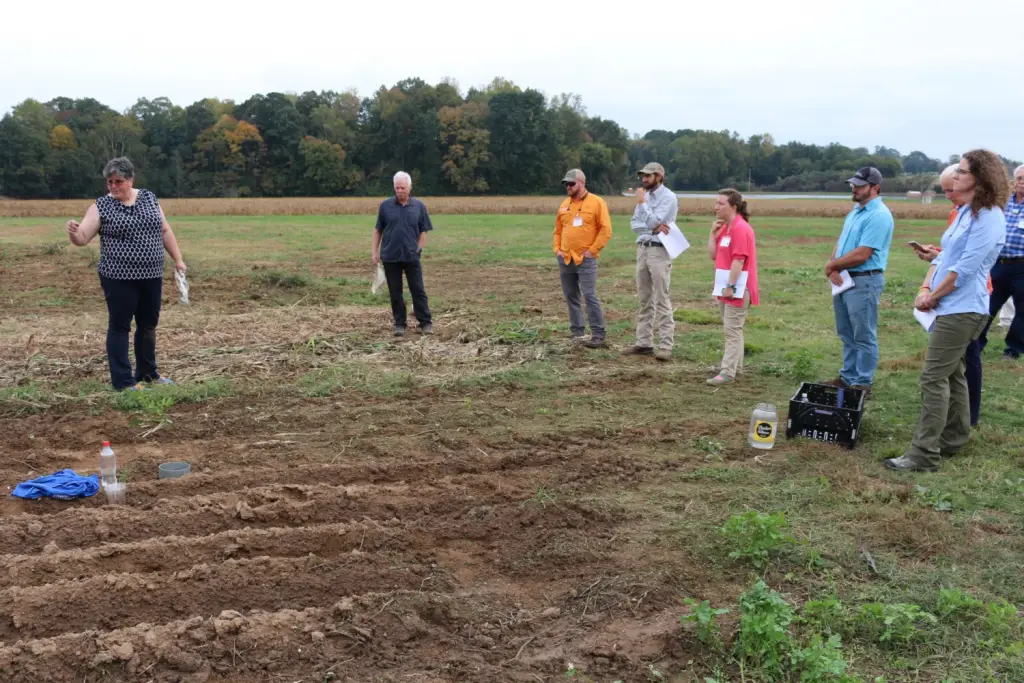
- Acceptance rate: 62%
- Average entry score: 1230-1400 SAT or 27-32 ACT
- Student-to-faculty ratio: 18 to 1
- Estimated cost of attendance (tuition and fees): $34,096-$57,088
- Average earning potential for graduates: $32,000 (College Simply)
Clemson University offers a range of soil science programs that prepare students for various careers in the agriculture and environmental sectors.
These programs provide students with the knowledge and skills needed to manage soil health, conserve natural resources, and conduct research.
Graduates can pursue careers as soil scientists, environmental consultants, agricultural extension agents, and more. Job prospects are promising due to the increasing demand for sustainable agriculture and environmental management practices.
Source: Clemson University
What’s it like to study at Clemson University?
#8. University of Illinois at Urbana-Champaign

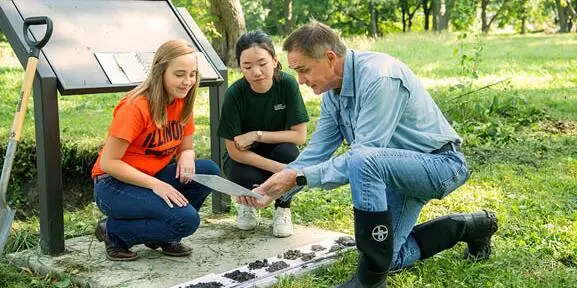
- Acceptance rate: 60%
- Average entry score: 1210-1470 SAT or 27-33 ACT
- Student-to-faculty ratio: 21 to 1
- Estimated cost of attendance (tuition and fees): $33,060-$50,510
- Average earning potential for graduates: $35,300 (College Simply)
The Soil Science program at the University of Illinois at Urbana-Champaign offers a variety of courses and research opportunities in the field of soil conservation.
Students in this program can learn about soil properties, nutrient management, and sustainable agriculture practices.
The program emphasizes the importance of soil conservation in protecting the environment. Graduates of this program are well-equipped to pursue careers in conservation, agriculture, and environmental science.
Source: University of Illinois at Urbana-Champaign
#7. University of Wisconsin Madison

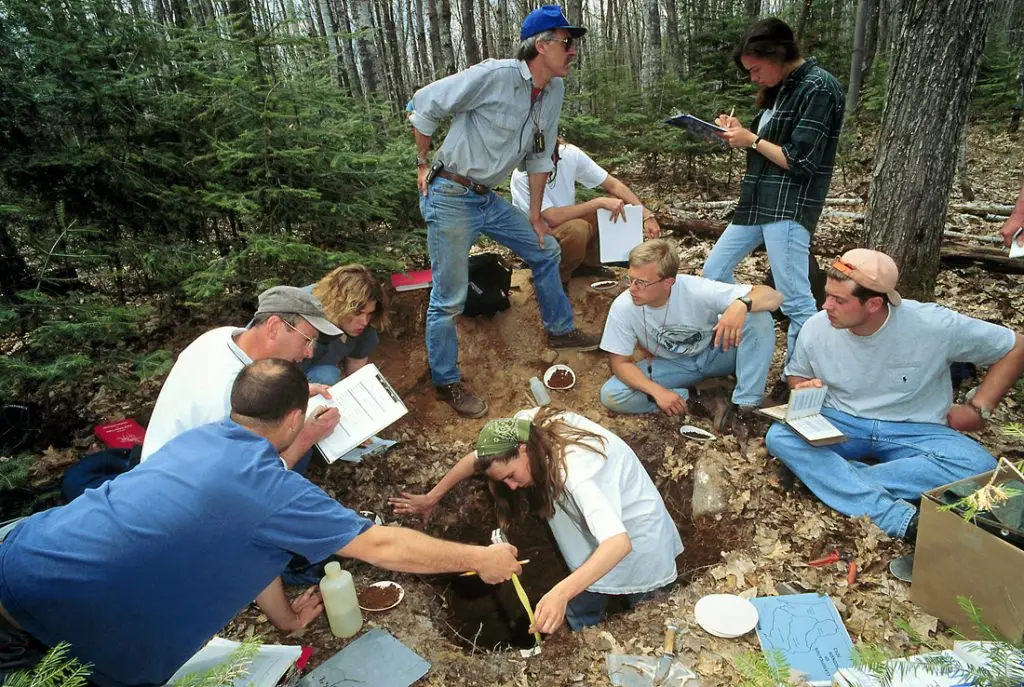
- Acceptance rate: 53%
- Average entry score: 1300-1480 SAT or 28-32 ACT
- Student-to-faculty ratio: 18 to 1
- Estimated cost of attendance (tuition and fees): $27,484-$55,372
- Average earning potential for graduates: $32,600 (College Simply)
The soil science program at the University of Wisconsin–Madison is among the best in the country. Students learn about soil processes and sustainable agriculture management strategies from renowned faculty members.
Both undergraduate and graduate degrees are available, along with research opportunities in areas like soil biogeochemistry, soil physics, and soil microbiology.
Students gain access to state-of-the-art research facilities and expert faculty, while internships and study abroad programs provide real-world experience in the field.
Source: College of Agricultural & Life Sciences
#6. University of California, Davis

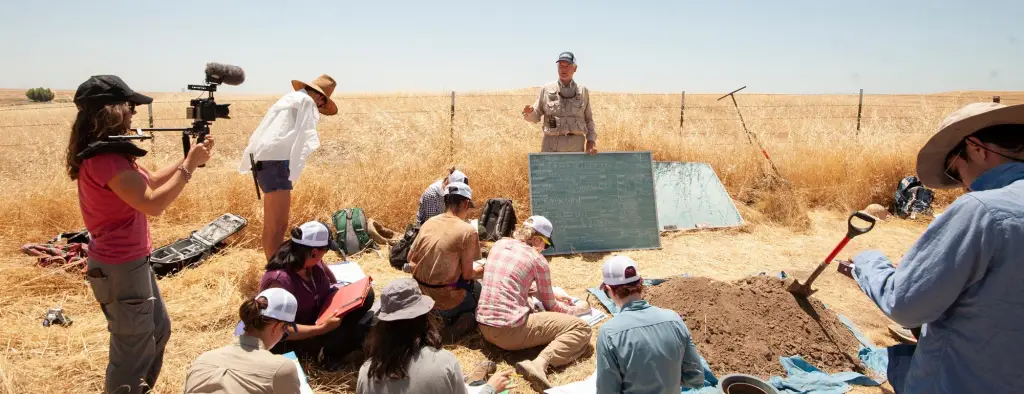
- Acceptance rate: 46%
- Average entry score: 1160-1400 SAT
- Student-to-faculty ratio: 21 to 1
- Estimated cost of attendance (tuition and fees): $37,122-$66,876
- Average earning potential for graduates: $30,200 (College Simply)
The University of California, Davis through the Department of Plant Sciences provides unparalleled soil science education.
Students have the opportunity to study with world-renowned faculty and take part in cutting-edge research.
This way, they can gain a better understanding of the complex interactions between soil, plants, and the environment.
Source: Department of Plant Sciences
Similar articles like this:
#5. North Carolina State University


- Acceptance rate: 46%
- Average entry score: 1250-1420 SAT or 27-32 ACT
- Student-to-faculty ratio: 15 to 1
- Estimated cost of attendance (tuition and fees): $24,986-$45,771
- Average earning potential for graduates: $26,200 (College Simply)
The crops and soil sciences programs at this public university emphasizes the importance of sustainable agriculture through education and research.
Through their innovative curriculum and strong partnerships with farmers, land grant universities, industry and government agencies, the Department of Crop and Soil Sciences is committed to developing the next generation of agricultural leaders.
Source: Crop and Soil Scientists
#4. University of Maryland College Park


- Acceptance rate: 44%
- Average entry score: 1370-1510 SAT or 31-34 ACT
- Student-to-faculty ratio: 18 to 1
- Estimated cost of attendance (tuition and fees): $27,984-$55,666
- Average earning potential for graduates: $34,100 (College Simply)
The soil sciences programs at the University of Maryland offer students a comprehensive understanding of soil’s role in ecosystems and food production.
Graduates are equipped with the knowledge and skills to improve soil health, manage land resources, and promote sustainable agriculture.
With a focus on practical training, students are prepared for careers in agriculture, environmental science, and government agencies.
The end product is highly skilled professionals who contribute to the development of sustainable land use practices and food security.
Source: University of Maryland
#3. University of Georgia

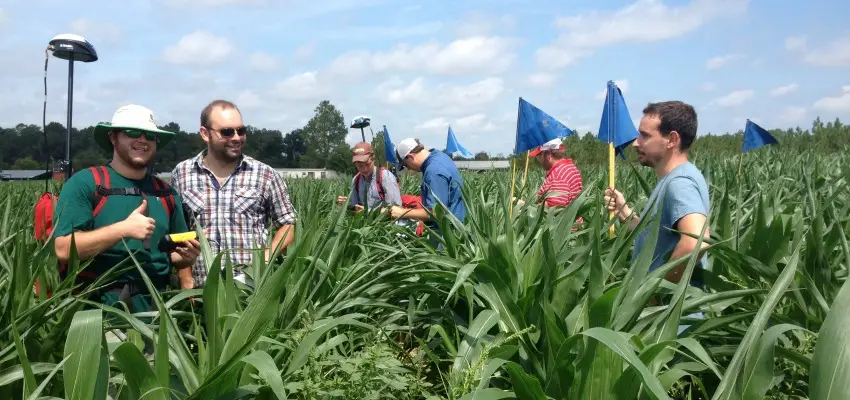
- Acceptance rate: 43%
- Average entry score: 1270-1450 SAT or 29-33 ACT
- Student-to-faculty ratio: 17 to 1
- Estimated cost of attendance (tuition and fees): $27,958-$46,998
- Average earning potential for graduates: $24,100 (College Simply)
The soil sciences programs at UGA focus on understanding the physical, chemical, and biological properties of soils.
Both undergraduate and graduate programs emphasize hands-on learning and research opportunities, with access to state-of-the-art facilities and equipment.
Graduates of UGA’s soil sciences programs are well-equipped to pursue careers in agriculture, environmental management, natural resources, and more.
Source: UGA
#2. University of Florida
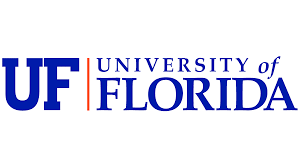

- Acceptance rate: 42%
- Average entry score: 1300-1470 SAT or 29-33 ACT
- Student-to-faculty ratio: 18 to 1
- Estimated cost of attendance (tuition and fees): $21,430-$43,708
- Average earning potential for graduates: $23,200 (College Simply)
The University of Florida’s soil sciences programs are highly comprehensive and interdisciplinary, covering soil chemistry, physics, biology, and ecology.
With a focus on sustainable land use and management, students gain a deep understanding of the relationships between soils, plants, and the environment.
The program offers both undergraduate and graduate degrees, as well as research opportunities in areas such as soil microbiology, nutrient cycling, and environmental science.
Graduates go on to pursue careers in agriculture, environmental consulting, and academia.
Source: UF Catalog
#1. Cornell University


- Acceptance rate: 11%
- Average entry score: 1400-1560 SAT or 33-35 ACT
- Student-to-faculty ratio: 9 to 1
- Estimated cost of attendance (tuition and fees): $80,287
- Average earning potential for graduates: $35,500 (College Simply)
Cornell University through the School of Integrative Plant Science trains future soil scientists to understand the relationships between soil, plants, and other elements of the environment.
The program is designed to prepare students for careers in research, teaching, and industry.
With its focus on integrative plant science, the program will prepare students to address problems that require a holistic view of soil-plant interactions.
Source: Cornell CALS
Conclusion
This soil sciences schools list dive deep into the best programs in the US. These soil sciences schools offer cutting-edge research, exceptional faculty, and enriching experiences.
Pursue your passion for soil sciences by exploring our top picks and diving into a world of opportunity.
Selection Criteria
Here is a list of the factors we considered when selecting the best colleges for soil sciences:
Please note that the order in this list might vary by ranking criteria and sources.
- Reputation and ranking of the school: We looked for schools that have a strong reputation and high ranking in the field of soil sciences.
- Faculty expertise, qualifications, and specialization: We researched the faculty members and their areas of expertise and qualifications to ensure that the school has professors with relevant expertise and specialization in the areas of soil sciences that are of interest.
- Curriculum and resources: We evaluated the curriculum to ensure it aligns with students’ interests and career goals and considered the quality of the school’s facilities and resources, such as labs, equipment, and libraries.
- Opportunities for hands-on learning and research: We looked for schools that provide opportunities for hands-on experience through internships, co-op programs, or fieldwork.
- Student support services and alumni network: We considered the availability of support services and the strength of the alumni network in providing mentorship, internships, and job opportunities after graduation.
- Extracurricular activities and diversity: We evaluated the availability of extracurricular activities and clubs that align with students’ interests and considered the school’s diversity and inclusivity.
- Networking and post-graduation support: We researched the school’s network of alumni and their post-graduation support for soil sciences students and also considered if the schools have a strong network of industry professionals and researchers in soil sciences.
Frequently Asked Questions
Q1. What is soil science?
Soil science is the study of the physical, chemical, and biological properties of soils. It includes the study of soil formation and its relation to land use, as well as studies in soil fertility and management practices.
Q2. How long does it take to become a soil scientist?
The length of time it takes to become a soil scientist depends on the type of degree you are pursuing.
Most students will earn a bachelor’s degree in soil science in four years. Some students may choose to earn a master’s degree in soil science before entering the workforce.
Q3. What are the most important things to consider when looking for a soil science degree?
There are many schools that offer soil sciences degrees, but not all of them provide the same level of quality education.
Before you apply to any school, make sure that it has a good reputation and offers courses that will prepare you for a career in this field. If possible, talk to soil sciences graduates from each school and ask what they think about it.
Q4. What are the top soil science schools?
Below is a list of some of the best soil science schools in the US:
- University of California, Davis
- University of Wisconsin, Madison
- University of Florida
- Purdue University
- Iowa State University
Q5. What are the benefits of studying soil sciences?
Soil science is a growing field that provides many opportunities for employment in the future.
The Bureau of Labor Statistics predicts that the number of jobs for soil scientists will increase by 8% between 2021 and 2031, which is much faster than average.
References
[1] Official Websites
[2] Salary Data from Glassdoor, Grad Reports, College Factual, College Simply, Zippia
[3] Ranking references, including news media such as 2023 Best Colleges with Crop and Soil Sciences Degrees


